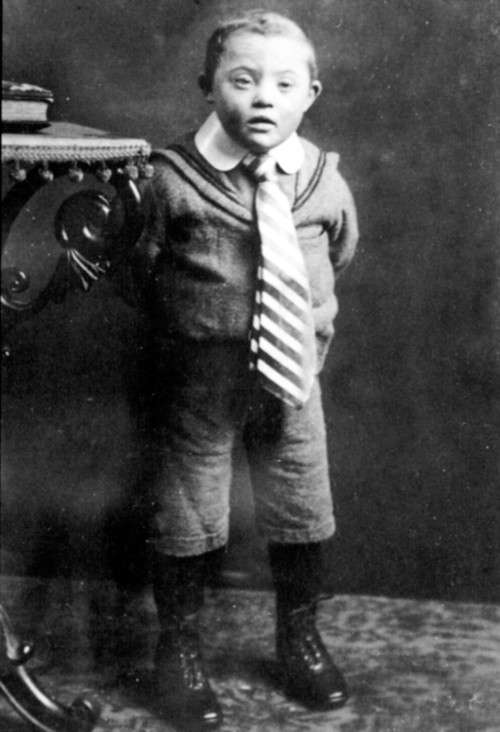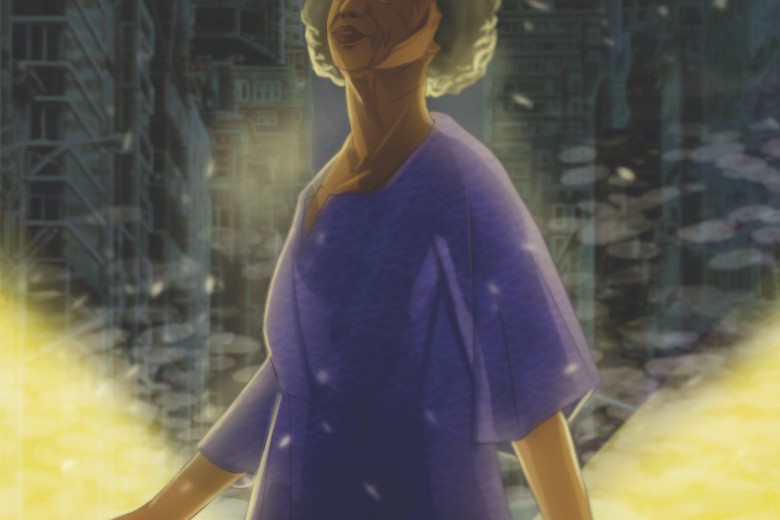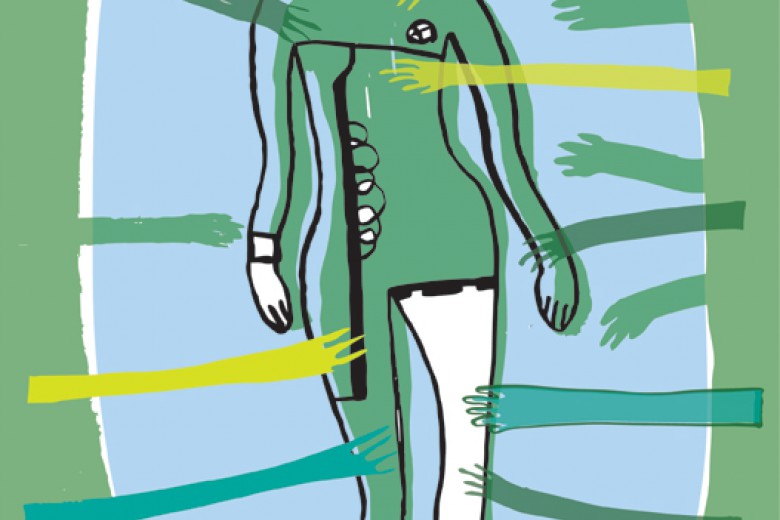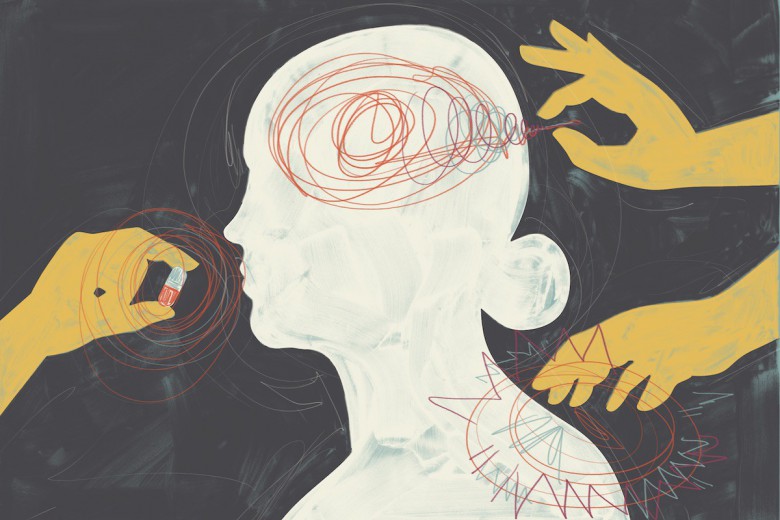
When my mother gave birth to her second child in 1974, hospital staff said he was mongoloid. English physician John Langdon Down coined the term in 1866, just before the British North America Act established the Dominion of Canada in 1867. In an era when steamships, railways, and telegraph lines carried the British empire to every horizon, and in which white supremacy was enshrined in “scientific” taxonomies of racial difference, Down had used the techniques of contemporary ethnography to measure and record the physical characteristics of people with the condition he named “Mongoloid idiocy.”
Up until the 1960s, most people like my brother were removed from “normal” society and regular schooling to die young in institutions (the Nazis employed involuntary euthanasia). My mother’s second son was not a mongoloid to me, of course, but Patrick, the older brother with whom I shared a bedroom for the first 12 years of my life. Patrick arrived late enough in the 20th century that he escaped social segregation, and the mongoloid handle never stuck. Each morning he rode a yellow bus to a special class, but that class was in a regular school with what we call normal kids.
Sharing a room and a bunk bed with my brother for over a decade sensitized me to things I couldn’t name. In the 1980s, Patrick embodied a different form of lower life than the mongoloid: the retard. I used to fantasize about punching kids in the face when they used the word. As I got older, and Patrick needed increased care as his congenital heart condition worsened, I had an intuitive sense that, to this society, if not its individuals, my brother was a form of human waste. Weak in body and “feeble” in mind, he was an economic suck, a drain rather than a tap.
Patrick died more than 10 years ago, but the world he left feels the same. “Retard” has been banished from use in polite company, along with “faggot,” “bitch,” and “cripple,” and for this we can be grateful. But perhaps these crude forms of othering have merely been eclipsed by more insidious references. A broad consensus on the necessity of fiscal restraint – and appeals to taxpayers and hard-working families – may not sound like an attack on anyone, but it sets the framework for an agenda that further punishes the marginalized. Where are the voices of the undocumented, the unemployed, the severely disabled, the dissident, or the dispossessed in middle-class cries for a fair share?
As communities across the country organize against cutbacks, privatization, and inequality, it’s worth considering how much has already been ceded. Recently, at the annual general meeting of the city school board, Regina residents gathered to challenge the introduction of the public-private partnership (P3) model proposed for new school construction. In opposition to the board, progressive electors passed motions underlining the need for transparency and accountability from politicians and bureaucrats alike. Key to the opposition argument was an appeal to the bottom line: P3s are a ripoff for taxpayers.
Later in the meeting, a mother approached the microphone to speak about the inhumane conditions her disabled son endures at school. Her testimony brought one trustee to tears. It is, of course, fiscally prudent to make public schooling as lean as possible. The 1.5 education assistants allotted for this child’s school make more economic sense than hiring five or 10.
In narrow budgetary terms, it’s not cost-effective to fund LGBT programming in schools, to build new social housing, to provide top-notch services to seniors, to maintain environmental monitoring stations and scientific libraries, to expand public transit, or to establish a national child care program. And there’s certainly no economic rationale for teaching about Canada’s history of genocide and ethnic cleansing or the lethal colonial dynamics of the oil and gas sector.
When we appeal to the logic of cost-effectiveness, I worry that our politics are not tied to a robust vision of human flourishing. We seem to have accepted the neoliberal framework in hopes of making tactical gains within it. The legacy of such pragmatism – this acceptance of the “common sense” of our day – is 30 years of mostly defensive struggles and a horizon of austerity for our children.
As we mobilize in our communities, it might be worth asking how the social forces that distinguish who is normal from who is not – the viable bodies from the abject – are rooted in a logic that sees economic productivity and balanced budgets as the apex of political achievement. In the absence of our own social vision, all we can do is react, using someone else’s terms of debate. We know what we are against, but what is it we are for?






